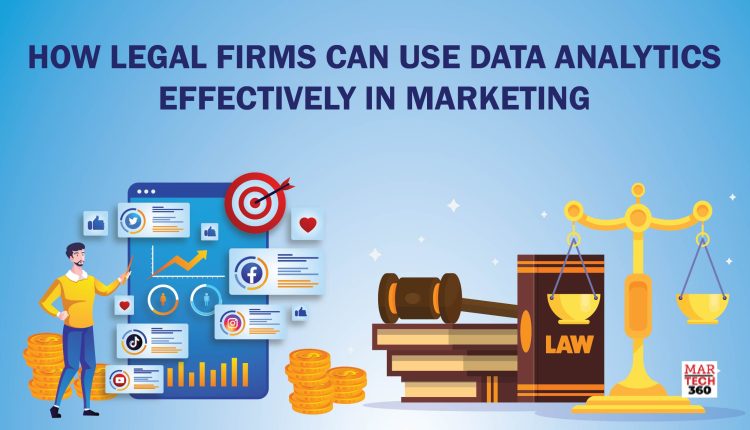There are many ways that legal firms can use predictive data analytics to answer questions such as whether to litigate or settle a matter, assessing valuation of entities and fee estimations. But data analytics also play a huge role outside of the legal practice too, specifically in marketing strategies.
When it comes to marketing a legal business in a digital age; data analytics is everything. If data isn’t analyzed in the right way, it’s impossible to understand your clients. And if you can’t understand them, you can’t reach them with your marketing efforts. But it’s not about the volume of the data that is important, it’s more to do with the questions you’re asking of your data. Rishad Tobaccowala explains: “We have huge lakes of data that are filled with dead fish”.
Many businesses gather as much data as they can, pile it all in a database, then start to think of ways to use it. This is akin to buying an encyclopedia and then wondering what to look up in it. As marketers, the first task is to work out what questions we need to ask of the data. This can be much harder than it sounds.
Also Read: How Can Next-Gen Digital Customer Experience Make or Break Your Brand
Asking the right questions of your data
Remember that data can only ever answer with numbers. For example, it can tell you exactly how many people visited a website in the past month and where they came from – but it lacks any qualitative insight. Marketers, therefore, need to break questions down to a point where they can be answered with numbers alone.
For example, you might be looking to increase traffic to your website from the right audience. No matter how much data we have, it can’t tell us how to do this. For the marketing function to be effective in analysing data, it will need to design questions that, once answered, might point out how it can be achieved, such as:
- How many people visited our website last month?
- What demographics do we see the most of?
- Which sites did they arrive from?
- Which web pages are the most visited?
This process of establishing questions needs to happen before the data has even been looked at.
Hone in on the data you need
With the list of questions in hand, marketeers can start the process of finding some answers. Think about what information you need to know to answer the question. Next look at how you can get it. For instance, if we want to know where website users have arrived from, some form of tracking system will need to be set up.
Quality is important, and you’re often better off getting detailed, relevant information on a targeted audience than casting your net as wide as possible. Potential new clients are often willing to give you their data if they trust you, so you should use this to build up a nuanced picture of your audience. Consider too, what data does google analytics prohibit collecting? What data analytics KPIs do you need?
Insight and creativity – the human element
Once you know how many people visit the website, which pages are most popular, where referrals come from, and so on, it’s then possible to interpret them: Tobaccowala highlights the importance of human insight using what he calls ‘The Four P’s’: Perspective, Provocation, Point of View, and Plan of Action. It’s our job, as humans, to turn the dry data into useful perspectives.
Digital marketing data analytics can tell us that our website is getting a lot of referral traffic from LinkedIn – our insight is that this may be an area to focus marketing spend on. This insight generates further questions – how much should we spend on LinkedIn advertising? Which demographics are the best ones to target? Can we produce better content for the platform? Go back to the start and repeat the same steps we’ve just been through until you have specific actions you can take to achieve your overall goal. This process is a crucial cycle in making informed decisions about the marketing strategy you take for your legal firm.
In the digital age, brands must be able to use data effectively and efficiently to market themselves and increase sales. It’s not just a case of hoarding data, it’s about understanding the questions that your business needs to know the answers to and then heading into the data after.


Comments are closed.